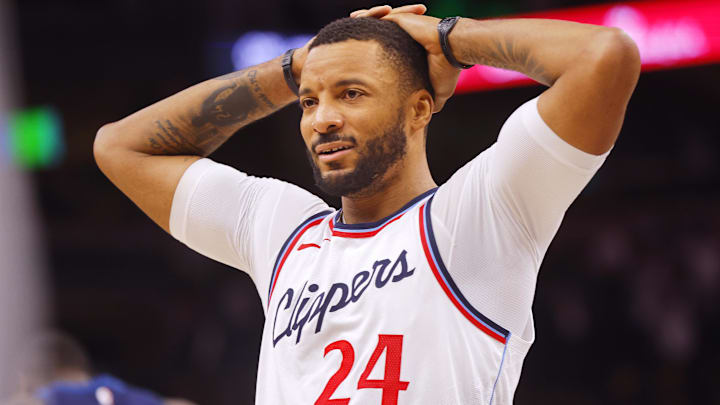Landing Norman Powell from the Los Angeles Clippers without sacrificing any core rotation players or draft assets is an objectively big win for the Miami Heat. But it also leaves them with a potentially nine-figure decision to make: Should they extend him, or keep prioritizing cap space for the 2026 offseason?
Powell is eligible to sign a new deal that could be worth up to three years and $77.4 million immediately after arriving in Miami, bringing the team's total commitment to him right around $100 million including next season. (If he waits six months, the Heat can offer him more.)
Team president Pat Riley and general manager Andy Elisburg can and will and should quibble over how much value Powell provides in a vacuum. A three-year extension takes him through his age-35 season, while a four-year agreement runs through his age-36 campaign. His shooting should hold up just fine as he plays out his mid-30s. The same cannot necessarily be said about his rim pressure.
No matter what, though, any extension Powell receives will eat into Miami’s projected flexibility next summer.
The Heat could have $30-plus million in cap space next summer
Re-signing Davion Mitchell to a two-year deal has already knifed into the Heat’s 2026 offseason spending power. He will be on the books for nearly $12.5 million. But expiring contracts worth less than the mid-level exception aren’t hard to dump. Miami will also blow past $30 million in cap space with Mitchell if Andrew Wiggins declines his $30.2 million player option, or is flipped this season for someone on an expiring deal.
Basically, with Terry Rozier’s money coming off the ledger after this year, the Heat have more than $12 million in cap space next summer, with the potential for that number to skyrocket past $30 million, and into $50-plus million territory depending on what happens with Mitchell and Wiggins.
Most of that flexibility flies out the window if Powell signs any sort of extension. Miami could maybe game its books to still be a cap-space team. But it would require, at minimum, losing Wiggins for absolutely nothing. And even then, the team would not be in line for a max-contract slot.
Miami should not extend Norman Powell
Short of Powell extending at a seriously discounted rate, it’s pretty clear that the Heat have no business extending him before next summer.
Acquiring him already signals they are not embracing what could have been a beneficial gap year. That, in turn, will lower the value of their 2026 first-round pick during future trade talks. And if Miami isn’t going to dangle a high-lottery pick in its continued pursuit of Giannis Antetokounmpo, prioritizing tons of cap flexibility is the next best thing.
Not that this is only about the Milwaukee Bucks’ two-time MVP. Cap space is hyper-valuable in free agency. Though the market in recent years is devoid of splashy names, next summer could feature Luka Doncic, Trae Young, and Mikal Bridges, along with some others.
The Heat are better off catering to the mystery-box possibilities cap space allows them to access. And it’s not like they must be resigned to losing Powell altogether. They can still pay him more money than any other team during the 2026 offseason.
Waiting to figure out his future is smarter. Extending him now—or later—would be an admission that this organization is consigned to what it’s doing now: treading water inside the middle of the Eastern Conference pecking order.
